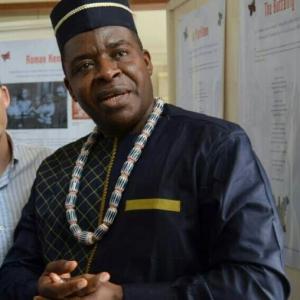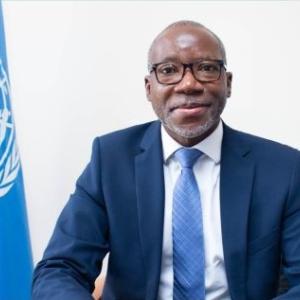UN shocked and outraged over horrific attack on school in Cameroon
26 October 2020
The United Nations has strongly condemned Saturday’s attack on a school in southwestern Cameroon, which claimed the lives of eight children, and wounded another twelve.
https://news.un.org/en/story/2020/10/1076112
On 24 October, a group of armed men attacked Mother Francisca International Bilingual Academy in Kumba, in Cameroon’s restive South-West region. According to local reports, the victims were aged between 12 and 14.
UN Secretary-General António Guterres called on Cameroonian authorities to conduct a thorough investigation to ensure that those responsible are held accountable, his spokesperson said in a statement.
“The attack is another disturbing reminder of the exacting heavy toll on civilians, including children, many of whom have been deprived of their right to education,” said the statement.
“Attacks on education facilities are a grave violation of children’s rights,” it added.
Mr. Guterres also called on all armed actors to refrain from attacks against civilians and to respect international humanitarian and international human rights law.
He also urged the parties to answer his call for a global ceasefire, reiterating the availability of the United Nations to support an inclusive dialogue process leading to a resolution of the crisis in the North-West and South-West regions of Cameroon
‘Schools must be places of safety, not death traps’
In a separate statement, Henrietta Fore, Executive Director of the UN Children’s Fund (UNICEF) also condemned the attack “in the strongest possible terms.”
“This has been a deadly weekend for schoolchildren in Afghanistan and Cameroon,” she said, also referring to the attack on an education centre in Kabul.
“I am shocked and outraged at these abominable attacks and condemn them in the strongest possible terms. Attacks on education are a grave violation of children’s rights,” Ms. Fore added, reiterating that schools must be places of safety and learning, “not death traps.”
‘Worst atrocity’ since schools resumed
According to the UN Humanitarian Coordinator in Cameroon, Matthias Z. Naab, the attack is the worst atrocity since the resumption of the school year on 5 October, in which more students enrolled in the North-West and South-West regions than in recent years. Unrest in parts of Cameroon had affected school enrolment and access to education.
“Children have a right to education. Violence against schools and innocent school children is not acceptable under any circumstances and can constitute a crime against humanity if proven in a court of law,” said Mr. Naab.
The UN World Health Organization (WHO) has provided medical supplies to the local hospital and the NGO, Médecins sans Frontières (MSF) is assisting with medical supplies and personnel.
The UN will continue to support Government and NGO efforts to provide necessary medical assistance to the wounded, added Mr. Naab.


Issa Sanogo
Previously, Dr. Sanogo served as Deputy Country Director (Programme and Operations) at WFP, where he orchestrated the development of Country Strategic Plans and oversaw the implementation of multifaceted food assistance programs. These initiatives, encompassing in-kind and cash transfers, resilience-building activities, nutrition, and school meals, benefited over one million recipients across Lebanon and Chad, including refugees, returnees, internally displaced persons, host communities, and vulnerable population groups. Prior to this, Dr. Sanogo played a pivotal role in pioneering market and economic analysis tools for market-based programming in WFP.
He served as a Regional Market Assessment Advisor in Thailand and later assumed the role of Head of the Economic Analysis Unit in Italy. During corporate emergencies, he contributed his expertise as a member of programme scoping missions. Before embarking on his United Nations journey, Dr. Sanogo served as an Economist at the World Bank in Guinea, where he was instrumental in monitoring economic performance and contributing to various strategies and projects aimed at enhancing governance, improving social spending, and reducing poverty. His career trajectory began with the Government of Côte d'Ivoire, where he held roles as an Economist at the National Bureau of Technical Studies and Development (BNETD) and as a Technical Advisor at the Ministry of Industry and Private Sector Promotion. In these capacities, he conducted economic impact analyses, coordinated partnerships with donors, and provided advisory support on economic and institutional reforms. Dr. Sanogo holds a Doctorate in Development Economics, complemented by Master's degrees in Financial and Economic Analysis of Development Projects and Analysis and Management of Economic Policies from the School of Economics (CERDI) of the University of Auvergne in France.


